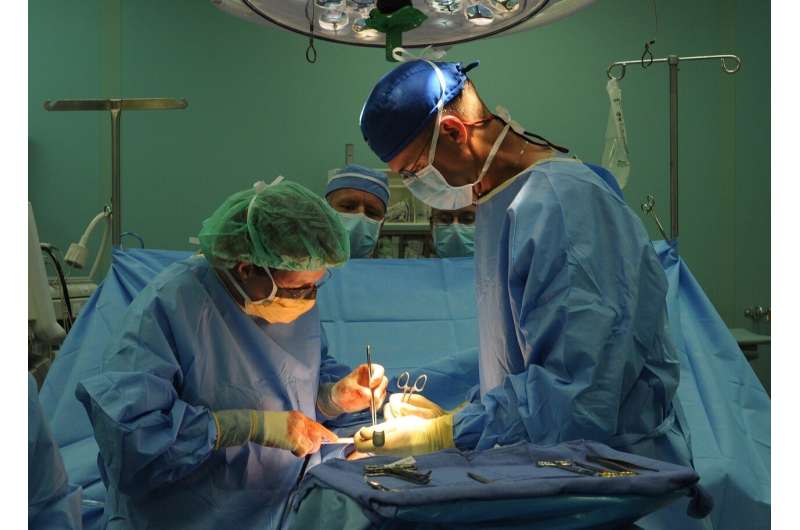
Hidradenitis suppurativa (Syn. Acneinversa) is one of the most troublesome and complicated skin diseases. The anti-inflammatory drug adalimumab can improve symptoms; however, patients also often have to undergo surgery. Until now, it was unclear whether adalimumab had to be discontinued prior to the procedure. A four-year worldwide multicentre study coordinated by Professor Falk Bechara from the Department of Dermatosurgery at the Bochum University Clinic for Dermatology (Director: Professor Eggert Stockfleth) came to the conclusion that discontinuation is not necessary. “This is a milestone for patients with moderate and severe hidradenitis suppurativa, who have to undergo surgery,” says Falk Bechara. The results were published in the journal JAMA Surgery from 18 August 2021.
Not-curable yet, but more efficiently treated
Hidradenitis suppurativa is a chronic inflammatory disease caused by an occlusion of hair follicles. It often occurs under the arms, in the groin and in the genital area with severe embarassement for the patients. In advanced stages, the disease is extremely painful and also causes huge mental distress and a reduced quality of life. It is not yet curable, but the symptoms can be considerably improved by therapy options that have advanced considerably in recent years. The dermatosurgery department in Bochum, headed by Falk Bechara, is one of the leading international centers, treating 1,000 patients per year. The study, which involved 45 centers in 20 countries, was coordinated here.
The study focused on adalimumab, an immunomodulating, anti-inflammatory standard drug that has been used successfully for years—not only for hidradenitis suppurativa. Indication areas include severe psoriasis, but also rheumatic diseases and chronic inflammatory bowel diseases such as ulcerative colitis or Crohn’s disease. The efficacy and safety of adalimumab has been evaluated in multiple trials in the past. Until now, however, it was unclear whether it could be combined and continued during surgical interventions, which are often necessary for patients with hidradenitis suppurativa. No data on this was available until now. The study included 200 patients, who received either the drug or a placebo.
Results to be evaluated for other diseases
Source: Read Full Article